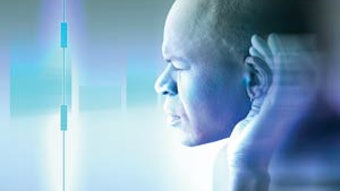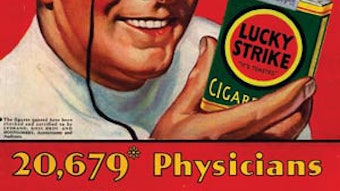Joint Statement on Consumer-Administered Hearing Tests and Direct-to-Consumer Hearing Aid Sales
Editors Note: As we go to press, this joint statement was developed and accepted by the named collaborators. This is an important position to note with the advent of online hearing evaluations being offered to consumers. The Academy of Doctors of Audiology (ADA), American Academy of Audiology (AAA), American Academy of Otolaryngology—Head and Neck Surgery (AAO-HNS), the American Speech-Language-Hearing Association (ASHA), and International Hearing Society (IHS) stand together, committed to increasing awareness of the benefits of amplification, and to finding safe and effective solutions that help the 75 percent of consumers who could benefit from hearing aids, but cannot afford to purchase them or have chosen not to use them. While we appreciate the desire of persons, companies, and organizations to reach more individuals in need of hearing aids, our organizations believe that patients must have access to a comprehensive hearing evaluation performed by a hearing health professional, be appropriately fitted by an individual licensed/registered in the state to dispense hearing aids, and have access to auditory rehabilitation and counseling to ensure appropriate fit and use of the hearing aid device. We urge all persons, companies, and organizations who are interested in assisting patients to work with the hearing health community in ensuring that patients have access to the professional services of all qualified hearing health professionals. Federal and state laws related to the dispensing of a hearing aid are currently in place to protect and ensure consumer safety. Regulations issued by the Food and Drug Administration require that patients younger than age 18 receive a medical evaluation by a licensed physician prior to the purchasing of a hearing aid from a dispenser. A medical evaluation by a licensed physician is also recommended for adults prior to a hearing aid purchase. Many state laws also recognize the importance of consumer protection and safety by placing restrictions on the dispensing of hearing aids by direct mail and/or the Internet. All of our organizations have both health and efficacy concerns about the use of consumer-administered hearing tests and the direct sale of hearing aids to the consumer without the involvement of a licensed hearing health professional—an audiologist, hearing aid specialist, or otolaryngologist. We encourage our respective members and other hearing health care providers to work collaboratively to ensure patient safety and enhance consumer protections related to the purchase of hearing aids and related devices.
The Academy of Doctors of Audiology (ADA), American Academy of Audiology (AAA), American Academy of Otolaryngology—Head and Neck Surgery (AAO-HNS), the American Speech-Language-Hearing Association (ASHA), and International Hearing Society (IHS) stand together, committed to increasing awareness of the benefits of amplification, and to finding safe and effective solutions that help the 75 percent of consumers who could benefit from hearing aids, but cannot afford to purchase them or have chosen not to use them.
While we appreciate the desire of persons, companies, and organizations to reach more individuals in need of hearing aids, our organizations believe that patients must have access to a comprehensive hearing evaluation performed by a hearing health professional, be appropriately fitted by an individual licensed/registered in the state to dispense hearing aids, and have access to auditory rehabilitation and counseling to ensure appropriate fit and use of the hearing aid device. We urge all persons, companies, and organizations who are interested in assisting patients to work with the hearing health community in ensuring that patients have access to the professional services of all qualified hearing health professionals.
Federal and state laws related to the dispensing of a hearing aid are currently in place to protect and ensure consumer safety. Regulations issued by the Food and Drug Administration require that patients younger than age 18 receive a medical evaluation by a licensed physician prior to the purchasing of a hearing aid from a dispenser. A medical evaluation by a licensed physician is also recommended for adults prior to a hearing aid purchase. Many state laws also recognize the importance of consumer protection and safety by placing restrictions on the dispensing of hearing aids by direct mail and/or the Internet.
All of our organizations have both health and efficacy concerns about the use of consumer-administered hearing tests and the direct sale of hearing aids to the consumer without the involvement of a licensed hearing health professional—an audiologist, hearing aid specialist, or otolaryngologist. We encourage our respective members and other hearing health care providers to work collaboratively to ensure patient safety and enhance consumer protections related to the purchase of hearing aids and related devices.







